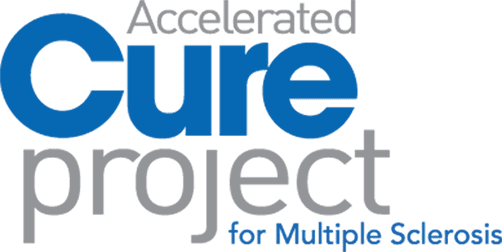Proteins are the work horses of the human body and its cells, determining both structure and function. The key to discovering a cure for MS may lie in studying the components of proteins and how they interact. Omics research is an emerging field that aims to do just this. The ACP Repository is a growing, vital resource for these studies.
The genome is the same in every cell, however each cell transcribes its own sections of the genome based on what type of cell it is. The pattern of gene expression (the set of genes a cell transcribes) determines the cell’s function. These gene expression patterns are altered during disease. Studying them can yield valuable insights into cell and tissue specific biological pathways and how they are involved in disease.
Gene Expression
Amino acids are the building blocks of proteins. They are made through a 2-step process. A cell’s genetic instructions (which are made up of DNA) are copied, or transcribed, into a temporary molecule called messenger RNA (mRNA). mRNA is then translated into a sequence of amino acids.

The omics sciences share the goal of identifying, describing, and quantifying all of the molecules that contribute to the form and function of cells, and how they correlate to disease in humans.
Branches of Omics Research

The ACP Repository is an open-access resource of blood samples and data from over 3,200 participants for the study of MS and other demyelinating diseases. Accompanying each sample are approximately 50 pages of self-reported personal information and clinical data, which is collected on a questionnaire, or case report form (CRF).
Investigators using ACP samples and data in their studies must return their research results to the Repository database for the future benefit of all researchers. As we continue to share ACP biosamples with researchers around the world, the Repository database contains a growing inventory of returned genomic, transcriptomic and proteomic datasets. Because some samples have been sent to multiple research teams, the returned research results contain new and important information that can be combined to explore new hypotheses and ideas. These overlapping datasets on the same individual represent exciting opportunities for “virtual collaborations” in which a researcher could use the results from another research study to inform their own work, do additional analyses, or a combination of both. These virtual collaborations are just one of the aspects of the ACP Repository that makes it a vital resource for MS research. ACP is compiling an inventory of the returned datasets and their overlaps (the samples they have in common), and will approach partner scientists to inspire new collaborations and accelerate and advance MS research.
Comparing overlapping datasets can provide valuable insights into MS disease mechanisms, better diagnostic techniques and treatment methods, especially when combined with the detailed CRF information.
Researchers have identified specific MS-related regulatory RNAs like long non-coding RNAs (lncRNAs) and microRNAs (miRNAs) using ACP Repository samples. Future collaborations could further analyze these returned data to shed more light on immune response, MS disease progression, repair and recovery, and lead to new insights about MS. This is an emerging area of MS research that ACP Repository resources could be instrumental in supporting.
In 2018, the Regeneron Genetics Center did a special kind of testing on the DNA samples from the ACP Repository. They looked at a small part of the DNA called the exome region. This region contains only about 2% of a person’s DNA, but it’s important because it contains the instructions for making proteins. The other 98% of the DNA doesn’t make proteins, it has other important jobs which include encoding regulatory RNAs (which, as mentioned above, manage how genes work). To learn more about these regulatory RNAs and what they do, ACP is looking for partners to do a more detailed test called whole genome sequencing. This test will look at all of the DNA in these samples, not just the small exome region. It will give them a better understanding of these non-coding RNAs and how they control gene activity. By studying the whole genome, ACP hopes to uncover more secrets about these important regulatory RNAs and how they work with the rest of our DNA. This can help us understand how genes are controlled and how they affect our health and well-being.
An exosome is a tiny sac-like structure that is formed inside a cell that contains some of the cell’s molecules, including proteins, DNA and RNA. Exosomes are released into the blood by many types of cells and travel throughout the body. Researchers are using ACP samples to look at miRNAs in exosomes. Future studies could examine the other molecules in these structures. This groundbreaking work could be the basis for new diagnostics in the future.
What are the limitations of ACP Repository resources?
ACP Repository samples are all whole blood samples that contain a mixture of multiple cell types. Results for RNA and protein analysis may be complicated as a result. It may only be possible to see the most prevalent molecules and the rare ones may be hidden. Single cell sequencing would allow us to see all cell types. If an investigator chose to do this technique in the future, their results would be added to the Repository database.

The multiple cell types in whole blood samples
The information in the ACP Repository is not MS-exclusive (it also includes samples and data from other demyelinating disorders and healthy controls). Are there sufficient overlapping MS datasets to produce any useful insights?
Some data in the Repository database is derived from older technology. Will it yield useful information?
Repository 2.0 – Where do we go from here?
A new collection of blood samples from iConquerMS members would not only refresh the ACP Repository’s existing inventory, it would also add samples from individuals that have taken newer MS treatments. The samples could undergo newer methods of analyzing peripheral blood, such as single cell sequencing. Blood samples and accompanying patient-reported outcomes (PRO) data could be collected over time to give a detailed picture of each participants’ MS journey.
The people who contributed samples and data to the ACP Repository (perhaps you are one of them!) knew that they were helping researchers conduct studies into the causes, mechanisms, and treatment of MS and other diseases. What they (you) might not have known is that they (you) were adding to what has since become the largest and most diverse collection of data about MS in the world. No other data set that combines biosample analyses, personal and clinical data exists to rival what together we have built. Moving forward with a prospective collection of samples and data from iConquerMS participants would enrich this powerful resource further. Its potential to help unlock the underpinnings of MS, new diagnostics, treatments and cures is unparalleled!


